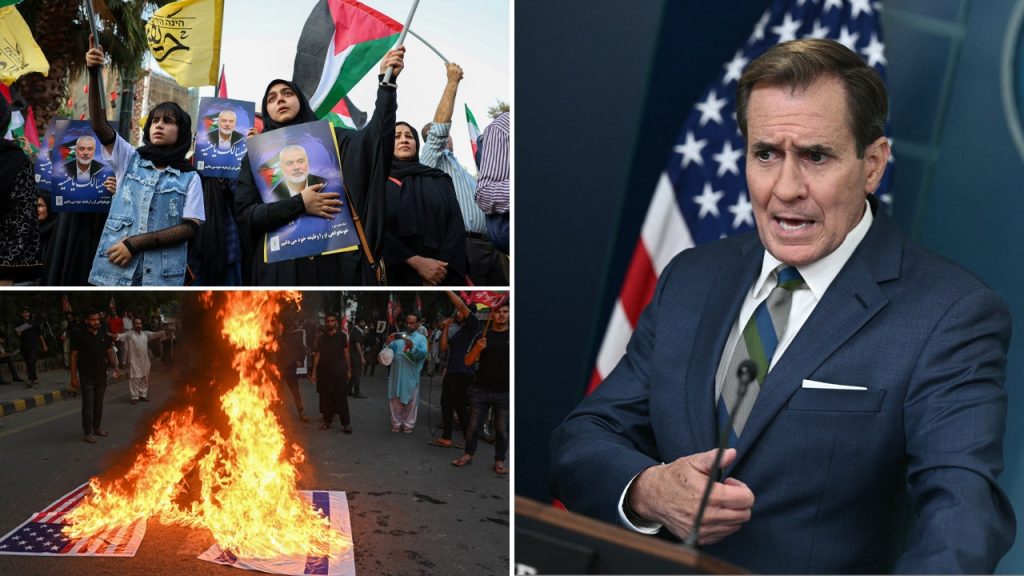The White House was unable to confirm reports that Hamas’ top political leader, Ismail Haniyeh, was killed by an airstrike in Tehran. National Security Council spokesman John Kirby stated that they could not verify or deny the statement by Hamas accusing Israel of the assassination. No one has claimed responsibility for the killing, but Israel is suspected of being behind it, as they had promised to eliminate Hamas’ senior leaders after previous attacks. Kirby mentioned that it was unclear what impact the assassination could have on the ongoing negotiations for a ceasefire between Israel and Hamas, as the U.S. government continued to work towards ending the war in Gaza and providing humanitarian aid to the Palestinians.
Kirby expressed that it was too early to determine the implications of the reported events on the ceasefire deal, but the Biden-Harris administration remained committed to finding a resolution to the conflict. The U.S. military confirmed that they had no involvement in the assassination of Haniyeh, who had praised previous attacks on Israel. Israeli Prime Minister Benjamin Netanyahu stated that Israel would retaliate against any aggression but did not directly reference the killing. The alleged assassination has heightened tensions in Gaza and the broader Middle East region, raising concerns of a wider conflict that the U.S. administration hopes to prevent.
Iranian supreme leader Ayatollah Ali Khamenei vowed revenge for the killing of Haniyeh, declaring that Israel had brought punishment upon itself. The situation remains uncertain as to whether Hamas will withdraw from ceasefire negotiations advocated by the Biden administration. President Biden has yet to address the escalating conflict in the Middle East, but White House press secretary Karine Jean-Pierre indicated that he would make remarks later in the week. She highlighted Biden’s focus on national security and reengagement with allies and partners in foreign policy, emphasizing the president’s commitment to putting American interests first.
The situation in the Middle East continues to be complex and challenging, with the conflict in Gaza resulting in significant casualties and ongoing negotiations for a ceasefire. The alleged assassination of Ismail Haniyeh has further inflamed tensions in the region, with implications for broader regional stability. The U.S. government, led by the Biden administration, is working to find a diplomatic solution to the conflict and provide humanitarian assistance to those affected by the violence. The involvement of various parties, including Israel, Iran, and Hamas, adds layers of complexity to the situation as efforts are made to reach a peaceful resolution and prevent a wider regional conflict.
The White House’s inability to confirm reports of Haniyeh’s assassination underscores the uncertainty surrounding the situation and the challenges of navigating complex diplomatic negotiations in the Middle East. The potential consequences of the killing on ceasefire talks and regional stability remain unclear, as various parties assess their next steps. The Biden administration’s focus on seeking a resolution to the conflict and ensuring the security of American interests underscores the importance of diplomatic engagement and strategic decision-making in addressing the ongoing crisis. As the situation continues to evolve, efforts to de-escalate tensions and reach a lasting peace agreement will be critical in mitigating further violence and instability in the region.


